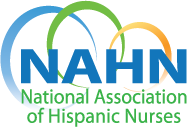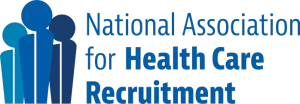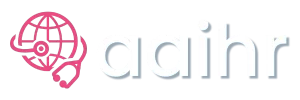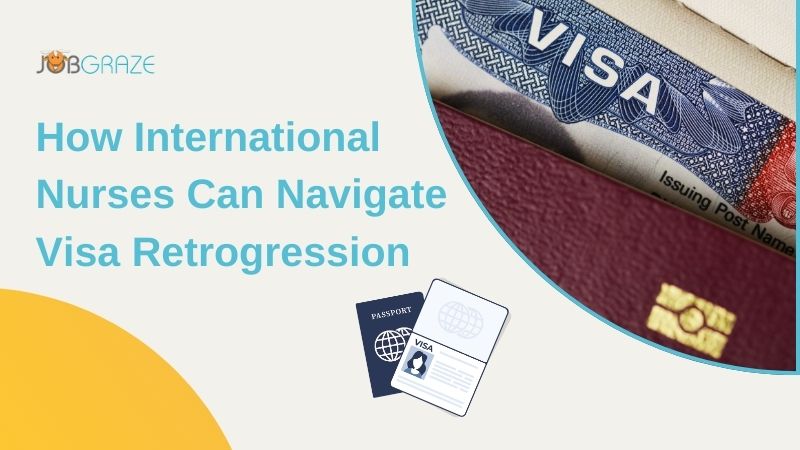
With the nursing shortage affecting so many healthcare providers in the U.S., international nurses are in high demand to help counteract the shortage. It is in the best interests of healthcare providers to hire qualified international nurses and get them to the U.S. as quickly as possible. However, the immigration process for international nurses can be complex and may lead to delays that can continue to leave healthcare providers in the U.S. short staffed.
The U.S. Department of State only issues a certain number of visas within a particular immigration category and for specific countries each year. When the demand for visas becomes larger than the number of visas issued per year, those applying for visas are put on a waiting list and enter what is known as visa retrogression. Visa retrogression leads to delays that frustrate international nurses and healthcare providers who need to fill their staff with qualified nursing professionals. While it is frustrating to encounter delays in the immigration process, knowing how to navigate visa retrogression can help ensure that international nurses get their visas as soon as possible to work in the U.S.
In this guide, we explain how and why visa retrogression occurs and what healthcare providers and international nurses can do when encountering visa retrogression.
What is Visa Retrogression?
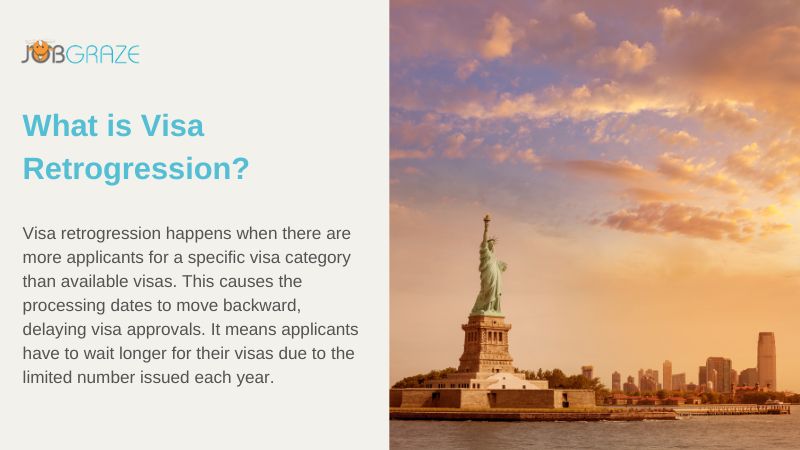
International nurses and others who are looking to obtain a work visa for the U.S. typically apply for employment-based green cards which allow for a faster immigration process. However, the U.S. Department of State only offers a set number of visas per immigration category and per country annually. When the demand for visas becomes greater than the Department of State limits, applicants are put in retrogression and the availability dates for visas are pushed back.
The U.S. Department of State sets the cutoff dates each year for the issuing of visas. If the number of visas issued reaches the yearly limit before the cutoff date, any application submitted after the limit is reached is put into visa retrogression until the cutoff date passes. After the cutoff date passes, visa applications that were in retrogression can be processed. It is important to note that it can be difficult to know how long the delay will be, even after the cutoff date has passed.
What are the Limits for Employment-Based Visas?
The limits for employment-based visas are set by the U.S. Congress through the Immigration and Nationality Act. Under this act, the number of annual employment-based visas that can be issued worldwide is set at 140,000, in addition to “the difference (if any) between the maximum number of visas which may be issued under section 1153(a) of this title (relating to family-sponsored immigrants) during the previous fiscal year and the number of visas issued under that section during that year.”
The number of annual visas issued to any single country must not exceed seven percent of the total limits set for employment-based preferences and family-sponsored categories. Visa applicants will be put in retrogression once the limits for the fiscal year have been met.
What are the Effects of Visa Retrogression?
When visa retrogression occurs, this affects employers as well as those seeking visas to work in the U.S. Employment-based visas allow those who receive them to bring their immediate families over to the U.S. so visa retrogression can affect the children of the applicants as well. It is also frustrating for international nurses to delay their plans to move to the U.S. and wait longer to start their new job which could affect them financially.
Visa retrogression is also frustrating for healthcare providers because they have to wait to bring hired international nurses to the U.S. to start working. This can put additional stress on hospitals and facilities that are already short-staffed.
How to Navigate Visa Retrogression
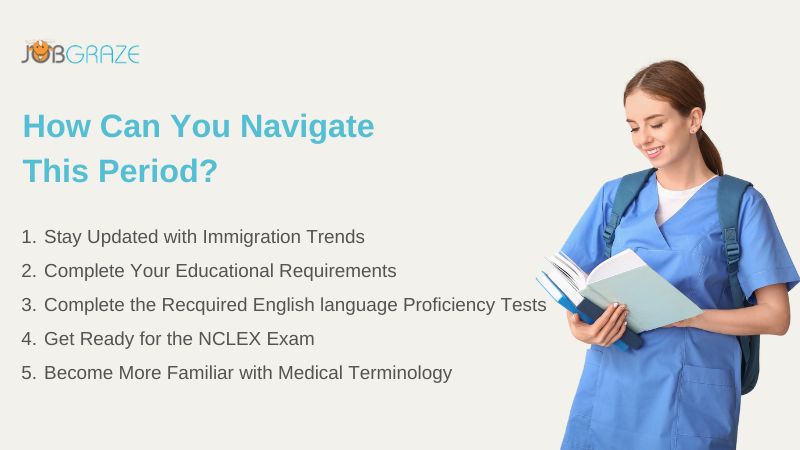
International nurses typically complete their education requirements, English language proficiency tests, the NCLEX exam, and other required exams, and gather the required documents before applying for a visa. It is at this step when an international nurse may be put in visa retrogression if the yearly limit for visas has already been reached. If an international nurse applying for a visa has been put into retrogression, they can take this time to complete any of the steps they may not have completed, or further their English language proficiency and become more familiar with the medical terminology.
International nurses can be sponsored through JobGraze. We assist with the process of becoming an international nurse, including applying for and obtaining a visa, and we have immigration attorneys that help navigate this process. While it is frustrating to be put on visa retrogression, we will continue the visa process by getting applicants in the immigration queue so they can obtain their visa faster once the cutoff date passes and they become eligible. We will check with the National Visa Center often to know when the applicant will become eligible and make sure they have all other credentials met in the meantime.
Obtain Your Visa and Find an International Nursing Job with JobGraze
Obtaining a visa to be eligible to work in the U.S. is the final step in becoming an international nurse, but being put in visa retrogression can complicate the process. International nurses can work with JobGraze to get in the immigration queue and make sure that all other requirements and credentials are met.
We begin immigration paperwork immediately once an international nurse is sponsored which can take 4 months to 1 year off the timeline. If an international nurse goes into visa retrogression, we will continue the process with the help of our immigration attorneys to obtain a visa as soon as possible. Our algorithms are updated regularly to check for changes in policy that we can take advantage of to help expedite the process. We can also help nurses from Canada and Mexico obtain a TN Visa which is a faster process than other types of visas and they do not go into retrogression.
Employers in the U.S. looking to hire international nurses can also turn to JobGraze to assist with the immigration process. JobGraze is a technology company that links internationally educated nurses directly with employers, including hospitals and healthcare facilities, to help them secure international nursing jobs. Our innovative platform enables these nurses to refine their search, identifying roles that best match their skills and experience. Employers can use JobGraze to identify international nursing candidates that best fit the credentials they are looking for to round out their staff. Many of the international nurses looking for jobs on JobGraze have already passed their NCLEX RN and language exams.
We assist nurses globally, from countries such as Nepal, India, Mexico, Canada, and the Philippines, in finding nursing opportunities in the U.S.

